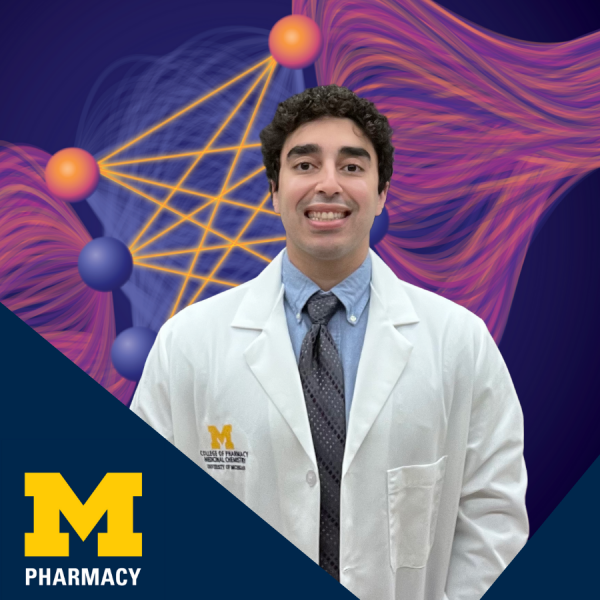Medicinal Chemistry PhD Candidate Wins Prestigious Pre-Doctoral Fellowship

Babak (Bo) Mahjour, fourth-year medicinal chemistry PhD candidate, has been awarded the 2022-2023 American Chemical Society Division of Medicinal Chemistry Pre-Doctoral Fellowship. Bo earns a two-year stipend and the opportunity to present his research at the 2022 American Chemical Society National Meeting, Gordon Research Conference, and Gordon Research Seminar.
Bo studied chemical engineering and computer science as an undergraduate at the University of Michigan and started his graduate studies at the College of Pharmacy in 2019.
Bo’s research focuses on the intersection of modern technology and physical sciences. Chemical synthesis shows great promise to solving many of the world’s problems including environmental issues, material design, and drug discovery. High throughput experimentation and high-performance computing are both advances that help power Bo’s research.
“I’m working in Dr. Tim Cernak’s lab at the interface of chemical synthesis, data science, and software engineering to research state-of-the-art techniques to identify and invent critical reactions of high value to society,” explains Bo. “I’ve written software packages to help chemists quickly design high throughput experiments using liquid handling robots – where chemists can run up to 1,536 reactions at once to be characterized and/or directly plated into cell-based assays for biological investigation. I also spend a lot of time doing wet lab chemistry to invent methodologies and create bulk reaction datasets.
“It’s very exciting to be working in such a cutting-edge space, where my contributions have had a direct and immediate impact on chemical research,” says Bo. “I’m proud that my work will contribute to the discovery of new reactions and molecules that will have profound uses in therapeutics and other fields.”
Recently, Bo has taken on an interesting side project: converting molecules into music. Bo adds, “This work has led me to spend more time practicing piano and writing songs using Ableton bootstrapped with molecular samples! I even wrote a website for anyone to test it out themselves.”
“Bo is an incredily creative, independent, and efficient scientist” notes Tim Cernak, PhD, Assistant Professor of Medicinal Chemistry. “This is evidenced by the seven papers, two patents, and two software packages we have produced together in four years. Bo is a computer scientist who found his way into a synthetic chemistry lab so his perspective on organic chemistry is entirely unique – almost everything he does is new. He takes a mathematical and programmatic approach to chemical synthesis.”
After completing his graduate degree, Bo hopes to secure a post-doctoral position, where he can further his training. Long-term, Bo sees himself contributing to the combination of technology and physical sciences. “The concept of the ‘modern lab’ bolstered by awesome cutting-edge innovations sounds like a really fun thing to work on,” says Bo. “Imagine a chemistry lab filled with iPads, voice-activated robots, and artificial intelligence assistants streamlining your day-to-day workflow. That's what I want to do.”



